“The podcast has really allowed me to embrace the possibility of Black Studies not just as a field but as a set of strategies and skills for persistence and survival. I am constantly thinking about the questions that have been asked, should be asked, and will be asked about Black life, and the utility of various methods for answering those questions in ways that meet this current moment.”
-Ashley Newby
In this week’s newsletter:
Q&A with Ashley Newby and John E. Drabinski, hosts of The Black Studies Podcast
Meet the Press: The University of Arizona Press
Graduate Student Spotlight: Seyi Osundeko
The Black Studies Podcast
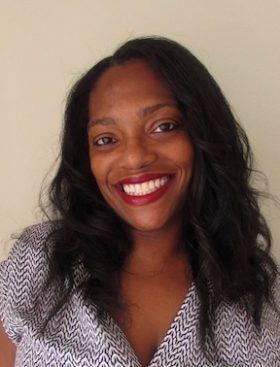
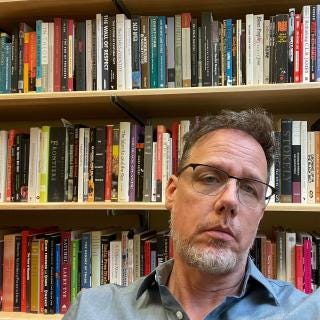
Ashley Newby is Senior Lecturer and Director of Undergraduate Studies for the African American and Africana Studies Department at the University of Maryland, College Park. Her research interests lie at the intersection of Black Studies and critical pedagogies, in particular teaching Black Studies and Hip-Hop pedagogy.
John E Drabinski is Professor of African American and Africana Studies and English at the University of Maryland. He is the author of a number of articles and books including Glissant and the Middle Passage (2019) and forthcoming works on James Baldwin, nihilism, and critical theory in the Atlantic world. With Michael Sawyer, he is co-editor of Journal of French and Francophone Philosophy
Q: For readers who are unfamiliar: What is Black Studies as a field? How is it similar and different to African American Studies and Africana Studies?
John: In some ways, I think of them as synonyms. All are committed to the study of Black life. But the name differences might be of significance, for example an African American Studies department name might indicate a near-exclusive focus in that particular department on the United States or an Africana Studies department might indicate a wider concern with Africa and its diaspora across Europe and the Americas. Generally it’s a loose sense of naming that, in some cases, is revealing of priorities. I have always preferred Black Studies, myself. To quote my dear friend Jeff Ferguson, may he rest in peace: “It’s called Black Studies because it studies Black people.” Good enough for me!
Whatever we call it, I think the field of Black Studies begins with a common starting point: this is an issue for Black people. How do we address that issue? With everything available, working with Black ways of knowing, working with whatever methods help us address the issue, and always drawing on the boundless resources of the Black intellectual tradition, whether that is the essay form, books, vernacular life, culinary traditions, musical cultures, and so on.
Ashley: I don’t really see a difference between the two for myself - while others will have different opinions. As John stated, it is the study of Black life rooted in Black Ways of Knowing. Several of the podcast guests have emphasized the centrality of the kinds of questions that are being asked as indicative of Black Studies (and Black Study). Another major aspect is the way that methods are used to explore those questions. Black Studies requires methods that both center and are accountable to the Black community. Manning Marable describes Black Studies as descriptive, corrective and prescriptive—work that does that is what identifies its relationship to the field for me.
Q: What originally drew you to Black Studies, and what do you appreciate about the field?
Ashley: One of the goals that my mother had for my sisters and I when we were growing up was to give us a Black History library. She cultivated a love and appreciation for Black authors in us early - ensuring that we read both what were considered to be traditional British and American “canon” literature, but also James Baldwin, Toni Morrison, I came to Black Studies as a field through Black Language.
I had a phenomenal writing instructor in undergrad - Dr. Austin Jackson - who rooted our required writing course in Black Studies, he was working on his PhD in Black Studies at the time. It wasn’t until that point I knew that you could do Black Studies as a career. From there, the work and research that I engaged with centered Black people and Black ways of knowing. I was primarily interested in education, and specifically the impact of Black language on the educational achievement and treatment of Black children. I was privileged enough to complete an independent study with Geneva Smitherman where I got to see research on Black language up close; and then I was accepted into the McNair Scholars Program where I was able to present at the International Gender and Language conference with Denise Troutman in New Zealand on Black women’s linguistic practices. These early experiences in Black Studies allowed me to see not just its importance but its possibilities. It also demonstrated to me the commitment to education and care of students that is inherent in the field. A large part of me wanting to be in Black Studies is wanting to pay forward what was sown into me.
John: I had a very different kind of journey than Ashley, who was Black Studies-born in college and graduate school. I did my PhD in Philosophy with a focus on post-WWII Jewish philosophy, in particular French critical theory. After finishing my first book in 1998, I was adrift looking for a new project. I’d tentatively settled on a project on representations of the Shoah in film and poetry, framed by the inheritance of traumatic experience. After presenting a bit of that work at a conference in Lima, Perú, one of the hosts - Salomón Lerner Febres - asked me over dinner why I did not ask those same questions of the inheritance of trauma from the perspective of the Americas. “After all, John,” he said, “this phrase ‘the Americas’ is synonymous with loss and trauma. You should bring your analysis back home.” That shook me up. It changed everything for me and I embarked on a ten-plus year reading project of reinvention, making myself a Black Studies scholar and teacher. That project is ongoing, of course, but it always comes back to that one question Salomón asked me: what does it mean to inherit a history of trauma and loss in the Americas? How does that shape expressive culture, meaning-making, and how we imagine living together? Black Studies is really the best way to address these questions with the depth they demand.
Q: What inspired y’all to start The Black Studies Podcast?
John: I was at Amherst College in 2019-2020, my last year of a long spell there before moving to University of Maryland, and it was the 50th anniversary of the founding of Black Studies as a field. We had a planned symposium to mark the event, it was going to be so festive. Scheduled for April 2020. But, yeah, the pandemic. Missing that never sat right with me, so in part this podcast was for me a way of picking up the spirit of a fiftieth anniversary. To remember the field, to look forward. It’s also the case that I just love conversation and thought it would be fun to sit with fellow teachers, scholars, artists, and activists and just converse about the world of ideas and politics we share. The pleasure of conversation is such a real thing and it was no small inspiration. We so rarely have these kinds of conversations in the field and I hear it a lot from guests: it’s just nice to pause and discuss why we do this and what we value about it.
Ashley: Doing a podcast was absolutely John’s idea, I love talking about Black Studies, and some of my most cherished times in graduate school were the conversations I got to have. Putting that, and my voice, on record was a lot for me though. But as apprehensive as I was going into it, I am so glad that we did it. It has been not only a really nice reflection on the field 50+ years after its institutionalization, but I have also learned so much about the kinds of work that people are engaging now - and in this particular, historical moment. It’s also been really amazing to talk with so many of the scholars and practitioners I have admired and cited.
The genre of a podcast also allows for an accessibility that I think also speaks to this moment. Podcasts are something so many people engage with now. You don’t have to have an institutional affiliation or journal subscription, and you don’t even have to sit down and read something; and guests don’t have to overly prepare or do extensive research - just talk about their work and commitments - it’s more accessible for both the audience and the guests.
Q: How has your understanding of Black Studies as a field changed as you’ve done this podcast?
John: We talked a bit about this in our 100th episode. This is a question I could write about for pages and pages and pages. And new pages are written every week. I think for me the biggest shift has been into a space of indecisiveness. I’ve always loved the open-ended character of Black Studies. You find your niche, find your people in that niche, and then expand what’s thought in that niche. So many niches. The more the better. But the podcast has reminded me at key points that it is important to think about standardization. Like, we are a field and we are something very specific. Which means it is important to articulate that and make it clear. I don’t know what to make of these two directions: standardize so we are a recognizable field or proliferate all possibilities? I am desperately thinking about what it would mean to say and in that sentence instead of or, but I won’t pretend to be resolved one way or another. But I love that. My best thinking comes from a thinking crisis. This is a little crisis of the best kind.
Ashley: Black Studies as a field looks different to different people - like John said, people find their niche and expand on it; and while I always knew that, I think that there are some underlying principles that continually come up in our conversations that bring those things together. In particular the centrality of questions and the un- or anti - disciplining of methods. While I do think that discussions about standardization are important to have, right now I think it’s so important that there are multiple paths and perspectives. We need that adaptability and flexibility to meet this moment. The podcast has really allowed me to embrace the possibility of Black Studies not just as a field but as a set of strategies and skills for persistence and survival. I am constantly thinking about the questions that have been asked, should be asked, and will be asked about Black life; and the utility of various methods for answering those questions in ways that meet this current moment.
Q: Do you have a favorite episode that you’ve recorded? And what episodes should someone new to The Black Studies Podcast start off with?
Ashley: I can’t pick one episode honestly, I think there are some episodes that I would probably put in a “primer” for the podcast but I have loved and learned so much from each of them. I think the episodes with Abdul Alkalimat and Nathaniel Norment of course - and being able to talk with Dr. Norment was truly an honor I didn’t know I would ever have. Dr. Nwando Achebe’s episode really laid out an amazing blueprint for ensuring that the methods used in Black Studies are responsible to the community.
Dr. Noliwe Rooks and Dr. Marsia Parham’s episodes provided valuable insights on the expansiveness and rigor of the field, and Dr. Sonja Lanehart’s episode was a much needed reflection on the reality of commitment to the field in this moment. I also particularly enjoyed being able to talk with Ozay Moore, the executive director of the All of the Above Hip Hop Academy - as an example of the work outside of the academy and the ways in which community organizations are engaging in Black Studies in such tangible ways.
John: Wow, this is a really, really difficult question. In no small part because we’ve recorded so many! Every week, it seems, I have a new favorite. But I would agree with Ashley and say that Abdul Alkalimat’s episode is incredible and incredibly important because he is one of the founders of the field. Nathaniel Norment, too, for that reason. Those two episodes are absolute masterclasses in how to start thinking about Black Studies from two of its originators. The field really was in great hands from its origins. I would also shift registers, though, and say that the graduate student podcasts have been incredible. The episode I did with Sophia Jahadhmy and Sofia Meadows-Muriel stands out because of their new horizons of research - the former talking about the Indian Ocean world, the latter talking about Puerto Rico and the hispanophone Caribbean. I left that episode, as with all the grad student and postdoc episodes, with an immense happiness. The future of the field is in good hands.
Q: In March you reached 100 episodes! Congratulations! What do you envision for this podcast in the long term?
John: I’d love us to have some substantial financial support. That is for sure! I’d love the support because I think we are so far into this with so many possibilities, we really need to be comprehensive. I’m sure we will find a way to do that because for me, and I know Ashley feels the same, it is both a labor of love and a political endeavor. I love Black Studies, it’s a way of reading, writing, thinking, and teaching that has made my life meaningful for nearly all of my professional life. But the field is under so many threats as universities downsize in response to shrinking student populations, plunging support for higher education, and the always aggressive devaluing of liberal education in the name of job training - it has me more committed than ever to getting the stories of Black Studies told and expanding how we think of its possibilities. We can do that with these podcasts, which are available to any and every person interested who can play from an audio device. Hopefully episodes will find their way into more and more classrooms (it’s already happening, I know that) and into scholars’ ears and keyboards.
Ashley: Getting as many guests and episodes as possible is absolutely where I see the podcast going. As John said, substantial financial support for it would be great, as it would allow us to keep doing this work, and having these conversations. I have learned so much from each of the episodes, and look forward to expanding the range of perspectives and work in Black Studies that is represented on the podcast. In particular, talking with more non-academic Black Studies practitioners is something I look forward to. So much of the work of Black Studies happens outside of the university, capturing that is so important. The creation of a substantial archive of how people are both thinking about and engaging with Black Studies 50+ years after its institutionalization is a dream that I know we both share.
Q: If you could have any one person on The Black Studies Podcast, who would you invite?
John: Hopefully this will be a fun comment to review after she’s on the podcast, but I’ve been unable so far to contact her: Sonia Sanchez. One of my very favorite writers, period, and her impact on the early formation of the field and its presence on campuses cannot be overstated. I worked for many years at Amherst College, where Sanchez was a professor in Black Studies for some time. I remember when my colleague there, Khary Polk, was in the College archives and found an old letter of declaration written by Sonia Sanchez, who was then Chair of the Department of Black Studies. Written in 1974, it reads:
“A people without thorough knowledge of roots and history cannot move into the future, cannot rest in the proper chair of life. We, of the Black Studies Department at Amherst, will begin the transplanting of roots with the expectation that they will bring forth new and plentiful fruit for all to be nourished.”
That’s what happens when a poet writes your mission statement. I’d very much want to ask her about this and just listen.
Ashley: That’s a really hard question, because there are so many people I would absolutely love to have on, and so many dream guests that we have been able to talk with already. I definitely agree on Sonia Sanchez, as she is incomparable.
Q: Can you share any upcoming interviews that we can look forward to?
John: This is a tough question! They are all so good. I guess I could say this, that I found the conversation with Corey D.B. Walker, who is at Wake Forest, exceptionally interesting for a number of reasons. He has interesting thoughts, yes. And the perspective from Religious Studies is so very important (and undervalued) in the field. But what struck me most was his reminder that Black Studies was founded in wild ambition: not to just become a department and stabilize, but to transform the entire idea of the university. In a moment when we’re all playing defense and trying to survive, I needed that reminder. We ought to be on offense with the grandest, most transformative vision.
Q: Do you have any book recommendations for readers who are interested in learning more about Black Studies?
Ashley: We are talking about putting together a bibliography of foundational texts mentioned in the podcast.
John: It’s Ashley’s great idea! I wish I’d thought of it when we started.
Ashley: So, definitely watch for that addition to the podcast. But I think everyone should read Abdul Alkalimat’s book The History of Black Studies. It’s a fantastic recounting of the history of the field and also a series of prescriptive observations that ask each of us in the field some important ethical and political questions. Without a doubt, everyone would enjoy this book and learn a lot. He was one of the founders of the field. There is so much wisdom in that book.
Q: Is there anything else you’d like to share with our audience about yourselves or the podcast?
John: I would just ask people to keep listening to and sharing episodes. It’s the best way for us to keep the ideas in circulation and how we can contribute to a big, collective conversation about the field. Every act of listening is the beginning of a conversation. And listening happens when episodes come across our computer and phone screens, so share widely! Also: listen broadly and to episodes with folks you’ve never heard of or who work from very different orientations. There is so much to learn in this series from unexpected perspectives. I learn all the time and am a better teacher, writer, and colleague because of it. I really believe that.
Listen to The Black Studies podcast to learn more about the field!
Meet the Press: The University of Arizona Press Podcast
Founded in 1959, the The University of Arizona Press is a nonprofit publisher of scholarly and regional books in the fields of anthropology, archaeology, environmental science, history, Indigenous studies, Latina studies, Latin American studies, and the space sciences. The Press also publishes the award-winning fiction and poetry series’ Sun Tracks and Camino del Sol. The NBN has tons of great interviews with authors who have published with The University of Arizona Press for you to check out!
Listen to our interview about Andrew Canessa and Manuela Lavinas Picq’s recently published book, Savages and Citizens: How Indigeneity Shapes the State. Although Indigenous peoples are often perceived as standing outside political modernity, they take the provocative view that Indigenous people have been fundamental to how contemporary state sovereignty was imagined, theorized, and practiced.
Then tune in to our interview with Andrew Curley, author of Carbon Sovereignty: Coal, Development, and Energy Transition in the Navajo Nation. For almost fifty years, coal dominated the Navajo economy. Then in 2019, one of the Navajo Nation's largest coal plants closed. This comprehensive book offers a deep dive into the complex inner workings of energy shift in the Navajo Nation.
In La Raza Cosmética: Beauty, Identity, and Settler Colonialism in Postrevolutionary Mexico Natasha Varner critically examines beauty pageants, cinema, tourism propaganda, photography, murals, and more. She shows how post-revolutionary understandings of mexicanidad were fundamentally structured by legacies of colonialism, as well as shifting ideas about race, place, and gender.
The University of Arizona Press also features a collection on their open access platform Open Arizona, including fourteen works from The University of Arizona Space Science Series. These books were originally published between 1976 and 2000, and the collection offers the research and vision of leaders in their fields, including Richard P. Binzel, Tom Gehrels, Mildred Shapley Matthews, and many others. These works provide an archive of the learning and scientific progress, which were published at a pivotal time in several emerging fields connected to astronomy and the space sciences. Check out these exciting open-access books here!
Subscribe to the University of Arizona Press podcast channel for more great interviews!
Graduate Student Spotlight: Seyi Osundeko
Seyi Osundeko is a fifth-year Ph.D. Candidate in English at Stanford University. She received her bachelor's degree in English from the University of Pennsylvania. Her dissertation investigates practices of self-mourning in women through African and Black diasporic literature. Other areas of interest include postcolonial feminism and creative writing.
Q: Can you share a bit about your academic interests and what led you to your research topic?
A: I’ve always been drawn to narratives that were self-conscious about womanhood. From Little Women to My Brilliant Friend to The Joys of Motherhood, I was struck by narratives that directly question what it means to be a woman in varying cultural contexts. Some time during my second year I made a list of 20 such texts and noticed a thread of sorrow running through them, but a specific sorrow about feminine socialization. That is what led me to the work that I do on self-mourning and how it operates in these works.
Q: Why did you decide to go to graduate school?
A: I was a Mellon Mays Undergraduate Fellow, and through that fellowship I had the opportunity to carry out an international research project on my own. I researched the way in which Nigerians in Nigeria and the diaspora (specifically England) viewed blackness. I wanted to critically examine how my subjects racialized themselves and each other. For example, some of my subjects in England argued that race wasn’t important in Nigeria, and Nigerians on the continent did not consider themselves black. But on the contrary, my subjects in Nigeria had a lot to say about race and racism in Nigeria. It was a combination of literary study and interviews I conducted in each country. The project was difficult to pull together, and I may have bitten off more than I could chew, but it was incredibly fulfilling to formulate a research question and follow the threads to completion. I fell in love with research that way.
Q: What have you found rewarding about graduate school so far?
A: The most rewarding part of graduate school has been the intellectual communities I’ve become a part of. Whether in my own department or the people I’ve met at conferences and summer programs, I’ve been able to connect with and be inspired by so many people. And people really keep in touch! It’s kind of incredible. For example, I attended the Black Europe Summer School in Amsterdam during my second year. Even though it’s been three years, our Whatsapp group is still active, and I’ve met a few of the members at different events since then.
Q: Are there any books that have been influential in your evolution as a scholar?
A: I truly enjoyed María Lugones’s Pilgrimages/Peregrinajes: Theorizing Coalition Against Multiple Oppressions. I read it cover to cover, and her concept of Trespassing was integral to the early stages of my self-mourning project.
Q: Is there anything that has been challenging for you about graduate school that you want to share with readers?
A: Time management has probably been the greatest challenge. I’m in my fifth year but I only recently found a schedule I can keep to consistently. Between coursework and exams, it wasn’t possible before. If I could go back to my first two years, I would tell myself to embrace just being a student and not exhaust myself trying to research at the same time. There’s a time for everything: a time to focus on classes, and a time for research. These days I’m reading How to Write a Lot by Paul Silvia and it’s helping me create a better writing schedule.
Q: Is there any advice you would like to give to other graduate students that might be reading this?
A: The advice that I give most often is “this degree is for you.” I think too many grad students, out of wanting to do well, make decisions based on what their advisor wants, or what other people tell them to do. At the end of the day, only you are going to live with the consequences of your actions. The timeline of your degree, your thesis topic, your conference papers, these do not exist for the sake of satisfying any outside person: they are for you.
Q: Are there any New Books Network interviews that you have listened to and really enjoyed?
A: I enjoyed the “Life after Grad School” series. Maybe it feels especially timely right now, but it’s always relaxing to hear personal stories of those on a similar path.
Check out the first episode of the series here. All episodes in this series are on the New Books in Higher Education Channel!




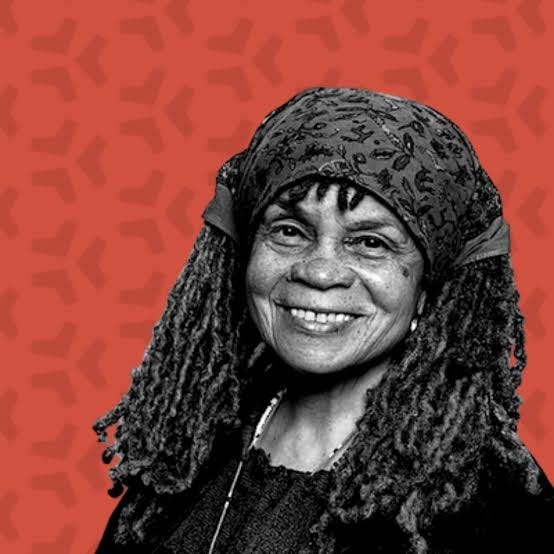
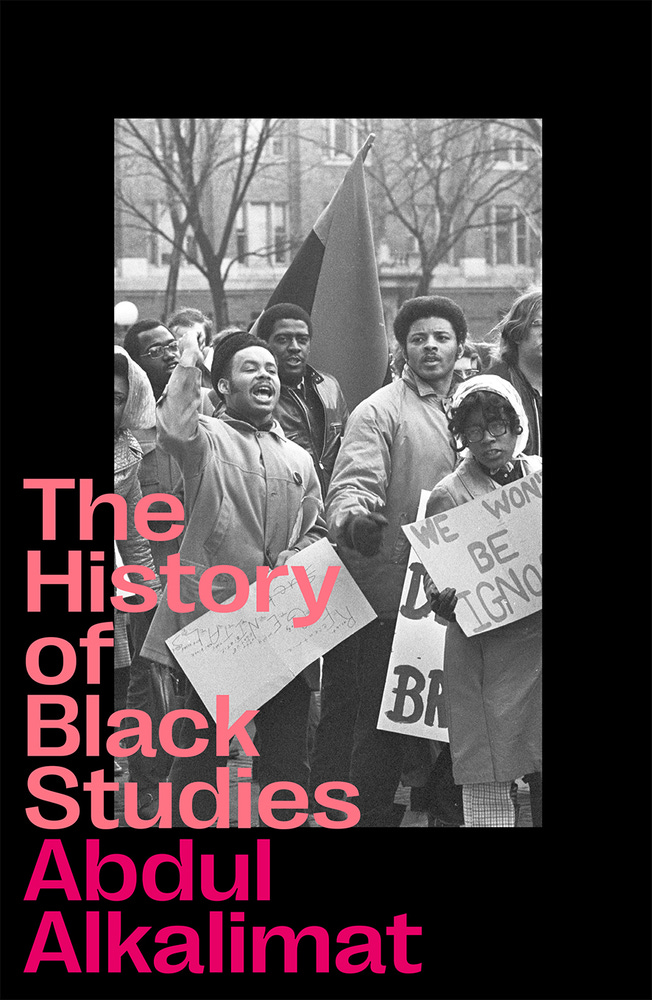

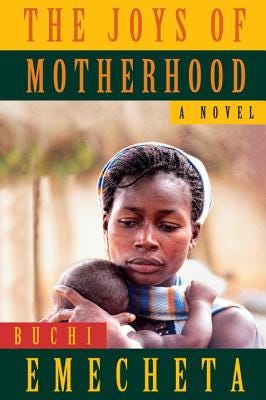
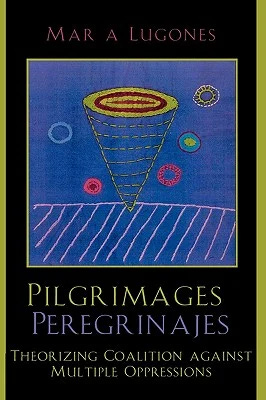
The Black Studies Podcast is a very nice initiative. Randy